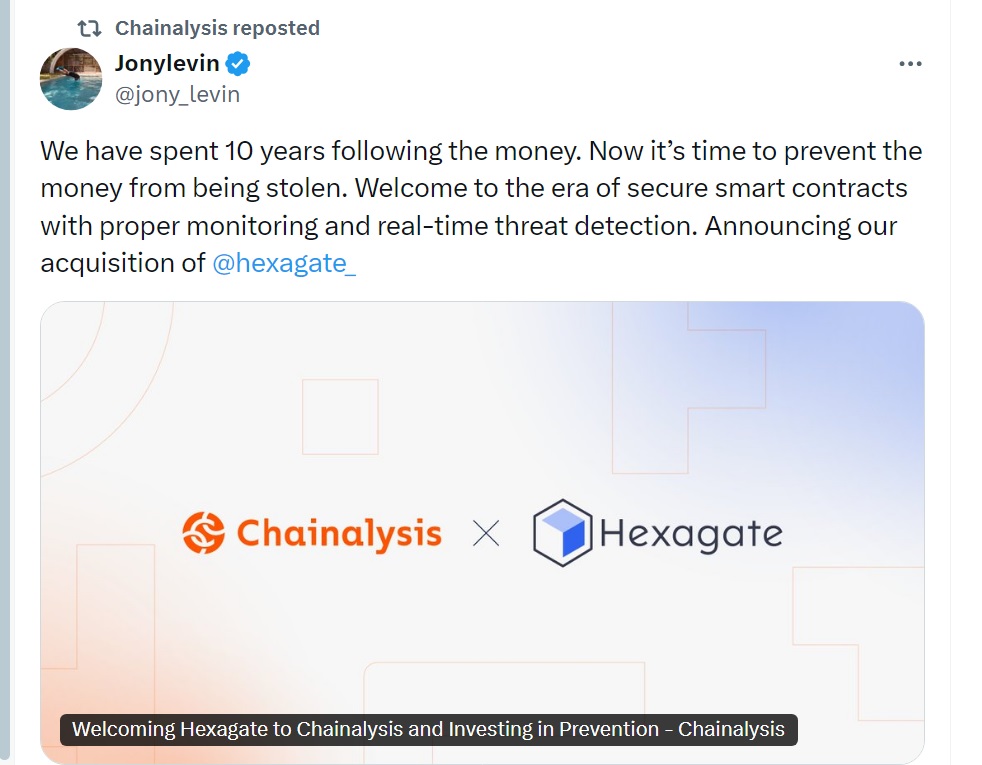Blockchain data platform Chainalysis announced the acquisition of Hexagate, a Web3 security firm, on Dec. 19.
Hexagate, an Israel-based company founded in 2022, provides solutions for Web3 threat detection and mitigation. Its acquisition by Chainalysis signals an expansion of the platform’s core services.
According to a blog post from Chainalysis, Hexagate’s products and services have prevented the loss of more than $1 billion in customer funds for its clients, which include firms such as Coinbase and Consensys.
Chainalysis CEO Jonathan Levin discussed the acquisition on X.com. Source: Jonathan Levin
“We have spent 10 years following the money. Now it’s time to prevent the money from being stolen. Welcome to the era of secure smart contracts with proper monitoring and real-time threat detection. Announcing our acquisition of Hexagate.”
Chainalysis pivots to prevention
Levin, writing on the Chainalysis blog, said the firm would need to expand its business “beyond investigations and into prevention” in order to realize its continuing success. This could signal a greater interest in shoring up the platform’s security offerings.
Details surrounding the acquisition are scarce as of the time of publication. The final purchase price remains unknown and it’s unclear whether Hexagate will see any personnel changes amid the takeover.
Cointelegraph reached out to Chainalysis for comment but didn’t receive an immediate response.
Speaking to Cointelegraph in early December, Levin said the company intended to continue expanding internationally to “protect crypto users across the world.”
The CEO’s commentary came just a couple of months removed from his appointment after his predecessor, Michael Gronager, stepped down from his position and board seat in October.
Related: Over 400 million crypto wallets have a non-zero balance — Chainalysis
Levin also speculated that the incoming Donald Trump administration would likely institute greater regulatory clarity surrounding digital assets. Specifically, he predicted the Securities and Exchange Commission (SEC) would repeal Staff Accounting Bulletin 121 (SAB 121), a rule requiring financial institutions to keep customers’ digital assets on their balance sheets.
Magazine: 5 real use cases for useless memecoins



